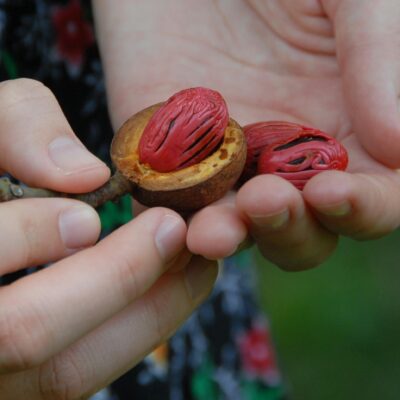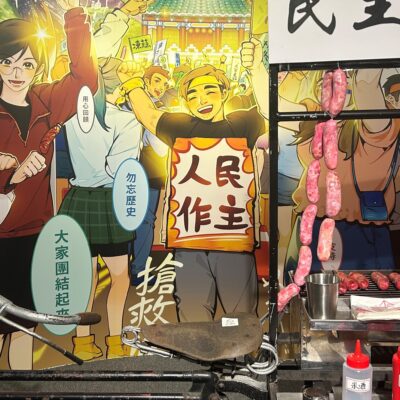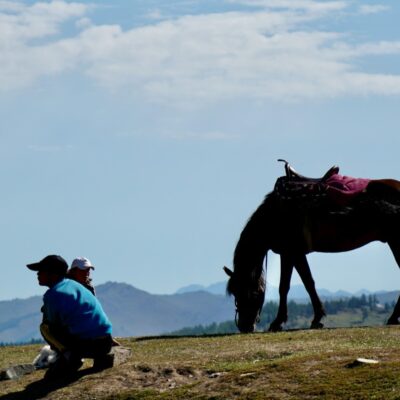The ‘One Country, Two Systems’ principle has consistently been Beijing’s paramount approach to Taiwan since 1982 when the provision of special administrative regions (SARs) were added to the Constitution of the People’s Republic of China (PRC). While the Chinese government claims that unification between China and Taiwan aligns with ‘the common aspiration of all Chinese’, scant research delves into PRC citizens’ actual sentiments about Taiwan. Are their views homogenous? Do they all consider Taiwanese people as sharing the same cultural values as people in China?
This article delves into China’s cultural representations of Taiwan, encompassing mediums such as cinema and literature, to illustrate that the Chinese people’s perceptions of Taiwan are, in fact, notably diverse.
The cross-Strait standoff between the PRC and Taiwan (officially the Republic of China, the ROC) is one of the most sensitive issues in the world. In 1949 after the Chinese Civil War ended, the Chinese Communist Party (the CCP) established the PRC, while the defeated Kuomintang (Chinese Nationalist party, the KMT) along with the remnants of its army and around one million civilians retreated to Taiwan, previously a Japanese colony from 1895 to 1945 with a population of around six million, including native Taiwanese and Indigenous people. The PRC closed its doors to the outside world in the 1950s; the KMT dominated Taiwan and those on the island lost contact with the Chinese mainland. Not until 1987, when Taiwan lifted 38-years of martial law and both sides of the Strait relaxed travel bans, were the exiled war migrants in Taiwan eventually allowed to visit their families in China.
During the four decades of separation in addition to the 50 years of Japanese colonial rule, Taiwan had moved in a different direction and developed its distinct cultural and political identity from that of China. Despite the Taiwanese people’s consensus about seeing Taiwan as an autonomous political entity (either the ROC or Taiwan), unification has always been the PRC’s goal, with the ‘One Country, Two Systems’ policy the solution it proposed to manage the island. Former Chinese premier Deng Xiaoping in his ‘Message to Compatriots in Taiwan’ first put forth this concept in 1979.
The idea of ‘two systems’ which recognises the differences of the two places is subject to the doctrine of ‘one country’ which underscores that Taiwan is an inseparable part of China, and China is the motherland of Taiwan. Taiwanese and Chinese are described as compatriots who come from the same ‘family’ and shoulder the same responsibility to revive the ‘glory of the Chinese nation’. These ‘home’ and ’family’ metaphors have been continually employed by Beijing to underscore the kinship, emotional ties and shared cultures between Taiwan and China. Current Chinese premier Xi Jinping’s statement that the ‘[t]wo sides of the Taiwan Strait belong to the same family’ (两岸一家亲) is the best example of such ‘one family’ discourse.
The intensified social exchanges between Taiwan and China since the 1990s have challenged Beijing’s top-down discourse. A huge number of Taiwanese have entered China for both long-term and short-term stays. In addition to the wave of returned Chinese Civil War migrants and Taiwanese tourists, Taiwanese entrepreneurs have moved their factories to China for lower labour cost, bringing with them thousands of Taiwanese professionals and their families. An increasing number of Taiwanese people in China in tandem with the popularity of Taiwanese cultural products has impacted ordinary Chinese people’s ideas about Taiwan, although the Taiwan-China cultural interactions in the 1990s and early 2000s were a one-way street, as most Chinese were still banned from visiting Taiwan.
Even after the resumption of cross-Strait interactions from 1987, Beijing still heavily controls how ‘Taiwan’ is represented and interpreted in cultural products, particularly in the cinema. Zheng Dongtian’s My Bittersweet Taiwan (台湾往事) in 2004 was the first film on the subject of Taiwan after 1987. Two years later, Yin Li’s film The Knot (云水谣) was produced. It was the first high selling ‘main melody film,’ a film category characterised by its reliance on the government’s financial subsidies to propagate state ideologies and market the country internationally. The image of Taiwan in both films largely conforms with the state’s discourse of grand unification. The portrayals of Taiwanese characters also match Beijing’s imagining: the protagonists of both films are based on a semi-autobiographical screenplay written by Zhang Kehui, who was born in Taiwan in 1928 and moved to China in 1948. He was the most high-achieving Taiwanese in the Chinese Communist Party, as he was Vice President of the National Committee of the Chinese People’s Political Consultative Conference (CPPCC) from 1998 to 2008. Developed from the life of Zhang, the Taiwanese characters admire Communism and support the PRC. In particular, My Bittersweet Taiwan, following the PRC’s ‘one family’ discourse, tells the story of a Taiwanese family who was loyal to China during the Japanese colonial period and saw China as their eternal homeland.
Non-government sponsored cultural representations, however, tell another story, showing Chinese artists’ divergent views about Taiwan. Wang Quan’an’s Shanghainese language film Apart Together (团圆) is one of the very few works on this theme that successfully passed Chinese censorship and was released in China. This film delves into the issue of cross-Strait family reunion during the 1990s. Apart Together won the Golden Bear Award for the Best Screenplay in 2010. After a long process of assessment by censors, the film was eventually released in full in 2013 on Moon Festival, a traditional Chinese holiday for happy family gatherings. However, Wang’s film questions the possibility of a happy reunion between Taiwanese and Chinese after four decades of separation. It recounts a story of a KMT soldier Liu Yansheng’s reunion with his wife Yu-e, whom he left behind on the mainland in 1949 while he followed the KMT to Taiwan. After Liu’s Taiwanese wife dies, Liu returns to China to visit Yu-e planning to take her to Taiwan. But Yu-e has married a gentle and easy-going PLA soldier Lu Shanmin and has a new family. Lu sacrificed his military career for her, and he also raises Liu and Yu-e’s son. Liu Yanshen’s return almost tears Lu and Yu-e’s family apart, as Lu is so kind that he promises to divorce Yu-e and let her go. At the end of the film, Yu-e decides to stay with Lu. Because of Liu’s visit, she realises the meaning of love and she sees it from Lu.
Throughout the film, Liu Yansheng is presented as an outsider and even ‘invader’ unwelcomed by this Chinese family. By drawing a highly allegorical contrast between the loyal and responsible Lu and the passionate yet selfish Liu, the director presents his view of the cross-Strait relationship, showing that Taiwan is not so much a member of the Chinese family as an awkward ‘outsider.’ This is exemplified in a scene at Liu’s farewell party. When it starts to rain, Yu-e, Lu and their family help one another squeeze into a doorway for shelter. Only Liu is left alone outside the doorway, demonstrating his ‘unbelonging’. While largely sympathetic to the PRC’s perspective, the film also apparently challenges the government’s grand narrative, showing that cross-Strait unification is not as easy and carefree as Beijing’s propaganda, and that ordinary people’s cross-Strait reunion may be full of pain and conflict.
Compared with the very limited number of movies on the topic of Taiwan, young Chinese, particularly the post-1980s generation, have been keen to write about Taiwan after Taiwan’s ban on Chinese visitors was lifted in 2008. Many of these literary works were first disseminated online and then, because of their popularity, published in book form. Most of the works are prose essays (散文) focused on the authors’ lived or travel experience in Taiwan and particularly discuss the cultural differences between the two sides of the Strait. They were primarily produced during the presidency of Ma Ying-jeou in Taiwan from 2008 to 2016. Ma was known for being more apt to accept Beijing’s ‘One China’ policy and encouraging of cross-Strait exchange. Subsequently, Beijing was also seen as more relaxed with regulations about the ‘Taiwan issue.’ For example, it lifted the ban on ordinary Chinese tourists visiting Taiwan and allowed more cultural products related to Taiwan to be published in China. Wang Quan’an’s Apart Together was released during this period.
Direct flights between Taiwan and China began in 2008. PRC citizens were allowed to visit Taiwan in tourist groups. From 2011, free independent travellers (FIT) were permitted. According to the Taiwan Tourism Bureau, from 2008 to 2016 there were over 21 million arrivals from China; that is, as many as 2.7 million PRC citizens visited Taiwan each year. Moreover, in 2010, the Taiwanese government passed laws allowing PRC students to pursue tertiary education in Taiwan, and mainland Chinese were allowed to stay in Taiwan as students for several years. Although Beijing suspended the FIT permit in 2019 and the student permit in 2020, nearly 10 years of direct contact with Taiwan and Taiwanese has influenced ordinary Chinese people’s views about the cross-Strait relationship.
Ian Rowen, a Taiwan-based scholar in geography, argues that even when the travel ban across the Strait was relaxed, Beijing still effectively controlled how most Chinese tourists understood Taiwan by incorporating the discourses of nationalism and territorialism into the tour group experience. Comparatively, Chinese independent travellers had more freedom to explore quotidian Taiwanese culture. The well-known Mainland Chinese blogger/writer Han Han’s ‘The Winds of the Pacific Ocean’ (太平洋的风) is an account from an independent traveller. It is a brief prose essay first posted on Han’s Weibo blog in 2012 (it was subsequently blocked in the 2020s). It was read 400,000 times and shared 170,000 times on the first day it was released. The essay provoked wide discussion among young Chinese regarding the cultural differences between Taiwan and China. Han praises Taiwan for its civilisation. He recounted how he lost his mobile phone in a taxi, which was quickly returned by an honest driver. Criticising China’s ‘wolf culture’ which, he argues, encourages competition and calculation, he says that he sees the character of kindness and good in ordinary Taiwanese. Han goes so far as to thank Taiwan and Hong Kong for protecting the traditional Chinese culture (中华文化) from being damaged by cultural and political catastrophes in China. Han chose to use the broader terms zhonghua (中华) and huaren (华人, ethnic Chinese) and avoided the more political and nationalist terms zhongguo (中国) and zhongguo ren (中国人); declaring Taiwan to be the best place ‘in the world of ethnic Chinese.’ Beijing’s ‘One Country’ discourse is undermined in Han’s work, and Taiwanese culture is interpreted as a ‘better system’ than that of the PRC.
In his essay, Han Han calls himself an ‘alien’ (异乡人) in Taiwan, which resonates with many PRC student writers. In 2011, the first group of around 1,000 PRC students arrived in Taiwan. In 2012 and 2013, as many as 10 books written by them were published, most of which revolve around the impacts of the study/lived experience in terms of cultural identification. These writers similarly call Taiwan ‘an alien land’ to demonstrate their displacement on the island. Sociologist Hu Junfeng, who also studied in Taiwan, notes that many PRC students suffer from strong feelings of loss when they realise that the Taiwanese people do not see themselves as Chinese nor regard China as their homeland. Cai Boyi, whose work I am in Taiwan, I am Young (我在台湾,我正青春) was published both in Taiwan and China, wrote about her experience of being seen as ‘the other’ by Taiwanese:
‘I am already used to be called a Chinese (中国人) by my Taiwanese classmates. I no longer argue with them. I am upset, but I no longer have the motivation and position to ask them cynically, “Aren’t you Chinese?” They indeed don’t think they are. Now at most I reply, “Please call me Mainlander (大陆人).’
With the rapid development of Taiwan nationalism, PRC students who stay in Taiwan, like Cai, feel the different ways in which they are alienated by Taiwanese politically and culturally. According to Zhang Ke, a scholar of cross-Strait politics, such experience arouses many PRC students’ strong Chinese nationalism and even resentment toward Taiwan.
Zhang Yiwei is the only PRC writer who has continuously published Taiwan-focused literary works in China over several years. Zhang moved to Taiwan in 2010 as an exchange student and from 2011 she studied for a PhD degree in Taiwan. Before she left Taiwan in 2017, she had published three literary works about Taiwan. Her work is to date the most important and detailed literature that presents a PRC student’s psychological transformation in Taiwan. She coined the term ‘Taiwanese dream’ to refer to the post-1980s Chinese generation’s overly idealised imagining of Taiwan as a modern and more civilised version of China. She argues that such an impression is based on Taiwan’s movies, TV dramas and literature. For her, the perceived ‘Taiwan’ is not the actual place, but an imagined utopia, which reflects the Chinese young people’s dissatisfaction with PRC society. Zhang’s work describes her cultural shock after she moved to Taiwan, her isolation and displacement, and the adjustment of her own position as an alien on the island so as to re-understand Taiwan. In the epilogue of For Dreaming of Your Leaving (因为梦见你离开), Zhang says that her feelings about Taiwan are like the process of knowing a person: ‘I have gradually grown to recognize his [Taiwan’s] kindness, hardships, and sorrow. And he also has learned my prejudices and stubborn-ness. Our relationship seems so close, and yet accidental.’ She says that she has developed a sense of affection for Taiwan, and yet she is unsure exactly what that feeling is. Whereas Zhang’s work is centred on personal feelings and hardly touches political issues, her narrative shows how a Chinese writer comes to adopt a more thorough understanding of Taiwan as well as the cross-Strait issue which, she hints, lacks a straightforward approach to resolution.
It has been 36 years since Taiwan and the PRC resumed their interactions with cross-Strait family visits. While Beijing is committed to the ‘One China’ and ‘one family’ discourse, it has been challenged by some Chinese who have had direct contact with Taiwan. The cultural representations I have discussed here have demonstrated Chinese writers’ and directors’ diverse interpretations of the cross-Strait relationship. While the views of these cultural works may be contradictory or even conflicting, they demonstrate that ordinary Chinese people’s feeling about Taiwan are not as homogeneous as often assumed but are instead dynamic and diverse.
Further reading: INTRODUCTION: Taiwan–Re-articulations of Politics and Culture in a Marginal State.
Image credit: カク チエンホン/Flickr.




